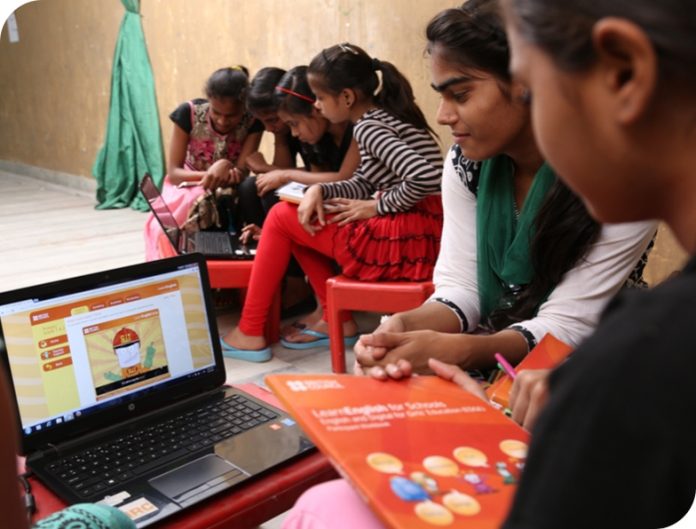Against a backdrop of a global recession, growing inequalities and the climate crisis, the United Nations’ culture agency (UNESCO) is calling for education to be prioritised on the occasion of the International Day of Education this January 24.
Echoing this call, the British Council, the United Kingdom’s international organisation for cultural relations and educational opportunities, believes education can help achieve all 17 Sustainable Development Goals (SDGs).
Education as a force for change
Adopted by the United Nations in 2015, the SDGs are a universal call to action to end poverty, protect the planet, and ensure that by 2030 all people enjoy peace and prosperity.
Education is key for accelerating progress towards achieving the goals.
“Only by maximising the knowledge and skills of people everywhere – and particularly in those communities most affected by poverty, conflict and climate change – can we hope to make meaningful progress,” says Maddalaine Ansell, Director of Education at the British Council.
Working with people in over 200 countries, the British Council engages with individuals to help them obtain skills and build connections; to learn English; and to gain a high-quality education. It collaborates with governments and partners in the education, English language and cultural sectors.
Reaching 650 million people in 2021-22, the organisation actively supports the SDGs, and in particular Goal 4: Quality Education.
“We believe that education has the power to change societies, enables people to flourish, support their communities and engage with their institutions,” says Maddalaine Ansell. The British Council works to ensure inclusive access to quality education and training as well as professional teaching qualifications, and to promote lifelong learning.
Through its global ‘Schools Connect’ programme, for example, it partners with governments and educators to share effective practices from other countries and help teachers bring an international perspective to curricula. It provides classroom resources and guidance, supporting young people to develop their international understanding and to build skills to respond to global challenges.
Interconnected goals
The British Council’s work also spans SDGs including Gender Equality (Goal 5), Climate Action (Goal 13) and Partnerships for the Goals (Goal 17).

In the sporting world, it partners with the Premier League to use football as a tool for change through its ‘Premier Skills’ programme. It has so far trained over 28,000 grassroots coaches and referees to develop skills to run community football projects which engage and enrich the lives of marginalised and at-risk young people. The programme has reached 1.7 million young people.
Its ‘English and Digital for Girls’ Education’ programme works with adolescent girls in socio-economically marginalised communities in Bangladesh, Nepal, India and Pakistan. It focuses on improving life prospects and building English, ICT and social skills and over 18,000 girls have benefitted so far.
“There have been examples of girls being able to return to school, delay an early marriage or seek paid employment whilst staying in school as a result of the new skills they have gained,” says Michael Connolly, Director of English at the British Council.
Through its ‘Climate Connection’ initiative, the organisation seeks to exchange ideas, promote innovation and bring about change on the issue of climate change through arts, culture, education and the English language. It brought, for example, underrepresented voices – especially those most affected by climate change – into the conversation, by ensuring women and marginalised groups can participate in climate research and grant opportunities.
Afghan girls and women in focus
UNESCO is dedicating this year’s International Day of Education to girls and women in Afghanistan who have been deprived of their right to education. It is calling for the immediate lifting of the ban restricting their access to education.
Currently, 80% (2.5 million) of school-aged Afghan girls and young women are out of school because of the decision of the de facto authorities to deny them access to secondary schools and universities. Barring girls and young women from classrooms in Afghanistan could wipe out huge gains made in education and create “a lost generation”, UNESCO has warned.
The British Council says it is “shocking” that so many in the 21st century do not have the opportunity to fulfill their potential.
“Recent events in Afghanistan have shown us how devastating – and deeply wrong – it is when particular groups are excluded from the opportunities a quality education can bring,” says Maddalaine Ansell. “Let’s turn that around by prioritising education and investing in people – we’re all we have.”
The inclusion of an organisation on the United Nations Regional Information Centre (UNRIC) website does not necessarily reflect the views of UNRIC and does not imply its endorsement.




